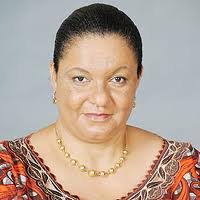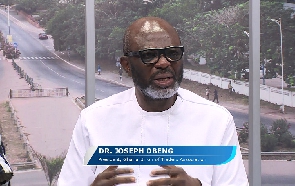- Home - News
- TWI News | TV
- Polls
- Year In Review
- News Archive
- Crime & Punishment
- Politics
- Regional
- Editorial
- Health
- Ghanaians Abroad
- Tabloid
- Africa
- Religion
- Election 2020
- Coronavirus
- News Videos | TV
- Photo Archives
- News Headlines
- Press Release
Business News of Sunday, 23 September 2012
Source: GNA
SADA to collaborate effectively with EDAIF for mutual benefit

The Savannah Accelerated Development Authority (SADA), has expressed the need to collaborate effectively with the Export Development and Agricultural Investment Fund (EDAIF) to ensure that the needs of farmers in the savannah ecological zone were well addressed to harness the opportunities.
Alhaji Gilbert Seidu Iddi, the Chief Executive Officer of the SADA, who announced this in Tamale on Saturday during the inauguration of the Northern Zone office of the EDAIF, said the two institutions had much in common in the delivery of the needs of the people.
He said the mandate of EDAIF had widened to include agricultural and agro-processing which could well meet the interest of SADA.
He expressed the worry that the savannah belt of the country lacked investors, who could contribute significantly to job creation and poverty alleviation, hoping that with the coming to effect of EDAIF, farmers and investors could take advantage to expand their farms and businesses for export.
Alhaji Iddi said the management and board of directors of the two institutions were going to hold a consultative meeting to see the line of collaboration, stressing that, with the expansion of the role of EDAIF, they would be able to have a meaningful and mutually beneficial discussion for positive results.
Dr. Abdul Nashiru-Issahaku, Acting Chief Executive Director of EDAIF, said the decision of the organization to open the office was informed by the need to improve funds accessibility to prospective beneficiary sectors of the country, adding it was because of the high concentration of EDAIF funded projects in the Northern sector, especially in the mango projects.
He said since 2009, 110 companies and associations had been supported under the mango project in the Northern, Upper East, Upper West, Volta and Brong Ahafo Regions to include other crops such as groundnut, soyabeans, pineapple, chilli, pepper and cashew.
Professor Francis Dodoo, Board Chairman of EDAIF, who inaugurated the zonal office, said 765 export-oriented projects had been supported by EDAIF to the tune of GHc293.52 million with a total of GHc206.72 million used for the funding of Export Credit and Projects Facility where 286 projects had been supported.
He said under the Export Development and Promotion Facility, GHc86.80 million had gone into the funding of 479 projects to contribute to the development of Ghana’s non-traditional export sector with earnings rising from US459.60 million dollars in 2001 to US2.43 billion in 2011.
“We are conscious of the fact that with over 60% of our people involved in agriculture, one can predict that EDAIF will be making a significant contribution to the enhancement of rural lives and indirectly the reduction of the crushing poverty that is afflicting many of our rural compatriots”, he said.
Prof. Dodoo said the facility was but many of the interventions that government had introduced into the agricultural sector stressing that many of the past interventions were either donor-funded or donor-instigated. But he noted that this facility was wholly Ghanaian enterprise both in conception and execution.
Madam Hannah Tetteh, Minister of Trade and Industry in a speech read for her said in the year 2000, the Export Development and Investment Fund (EDIF) was established by Act 582 to provide financial resources for the development and promotion of export trade.
She said in October 2011, Export Development and Agriculture Investment Fund Act 823, introduced an amendment of Act 582 to include the provision of financial resources for the development and promotion of agriculture relating to agro-processing and the agro-processing industry thus the rename; Export Development and Agricultural Investment Fund (EDAIF).
She said with the commissioning of the new office, farmers who wish to access EDAIF funds no longer had to make the long and tortuous journey to Accra to apply for financial support, noting that “This has been equipped to deal with all the needs of exporters and agriculturalists and agro-processors in the Northern Savanna belt”.










